2 March
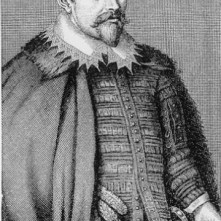
Thomas Bodley
1535 – Death of Sir Robert Drury, lawyer, Privy Councillor and Speaker of the House of Commons.
1545 – Birth of Sir Thomas Bodley, scholar, diplomat and founder of the Bodleian Library, in Exeter. He was the son of John Bodley, a Protestant merchant who took his family into exile to Germany during Mary I's reign. The family returned to England in Elizabeth I's reign, and Bodley was able to study at Magdalen College, Oxford. He then lectured at Merton College before serving Elizabeth as a Gentleman Usher and then diplomat. He re-founded the Oxford University library in 1598, and it was re-opened in 1602 as Bodley's Library, or the Bodleian Library.
1618 – Burial of Elizabeth Carey, Lady Hunsdon, wife of Sir George Carey (Mary Boleyn's grandson). She was buried in the Hunsdon vault in Westminster Abbey.
1619 – Death of Anne of Denmark, consort of James VI and I, of dropsy and consumption. She was buried in Henry VII's Chapel in Westminster Abbey. According to her biographers Maureen M. Meikle and Helen Payne, her entrails were buried at the Abbey on 5th March and her body lay in state at Denmark House from 9th March to 13th May, when she was laid to rest at the Abbey. Her funeral was “in form and scale comparable to that of Queen Elizabeth.”
3 March
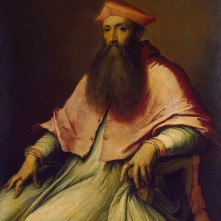
Cardinal Pole
1500 - Traditional date given for birth of Cardinal Reginald Pole, Mary I's Archbishop of Canterbury, at Stourton Castle in Staffordshire. He was the third son of Sir Richard Pole and Margaret Pole (née Plantagenet), Countess of Salisbury. His mother was the daughter of George, Duke of Clarence, brother of Edward IV and Richard III.
1528 – Marriage of Margaret Tudor, sister of Henry VIII and widow of James IV, and her third husband, Henry Stuart (Stewart), 1st Lord Methven. She had divorced her second husband, Archibald Douglas, 6th Earl of Angus, in 1527. Margaret's marriage to Methven was not happy for long, though. Margaret had managed to pick another unfaithful husband, so she fought for a divorce, as she had with her second husband, but was not supported by her son, King James V. Margaret was later able to reconcile with Methven.
1542 – Death of Arthur Plantagenet, Lord Lisle, courtier, soldier, diplomat, administrator and illegitimate son of Edward IV. He had been arrested in May 1540 for alleged treasonable communications with Cardinal Pole, and, according to John Foxe, suffered a heart attack on 3rd March 1542 when told the news of his release from the Tower.
1551 - Death of Thomas Wentworth, 1st Baron Wentworth and Lord Chamberlain in the reign of Edward VI. He was a member of the jury at the trials of Anne Boleyn and George Boleyn, Lord Rochford, as well as those of Henry Pole, Baron Montagu, and Henry Courtenay, Marquis of Exeter. He was buried in the St John the Baptist Chapel, Westminster Abbey.
1551 - Burial of Martin Bucer, theologian and reformer, in Great St Mary's Church, Cambridge. He died 28th February.
1582 - Birth of Edward Herbert, 1st Baron Herbert of Cherbury, soldier, diplomat, philosopher, poet and author of "The Life and Raigne of King Henry the Eighth". Although his career was in the Stuart period, Tudor historians make use of his work on Henry VIII.
4 March
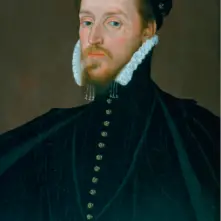
Henry Carey
1526 - Birth of Henry Carey, 1st Baron Hunsdon, courtier and administrator, was born. He was the only son of William Carey, courtier and favourite of Henry VIII, and his wife, Mary (née Boleyn). There is controversy over his paternity due to Mary Boleyn having a sexual relationship with Henry VIII at some point in the 1520s, but the majority of historians believe that Henry was fathered by Carey.
1584 – Death of Bernard Gilpin, reformer, theologian, Church of England clergyman and preacher. He was known as the "Apostle of the North" due to him carrying out preaching tours in Northern England. Some say he died in 1583.
1590 – Execution of Christopher Bales, Catholic Priest, in Fleet Street, London. He was found guilty of treason under the “Acts against Jesuits and Seminarists” (1585), 27 Elizabeth, Cap. 2.
1606 – Death of Sir Edward Fitton, member of Parliament and administrator, in London. He was buried in Gawsworth Church in Cheshire. Fitton served Elizabeth I as Receiver-General for Ireland, and was involved in the plantation of Ireland.
1607 – Death of George Coryate, clergyman and Latin poet, at Odcombe in Somerset. He was Rector there and died in his parsonage. He was buried in the chancel of his church. His son, Thomas, published some of George's work, Posthuma fragmenta poematum Georgii Coryati Sarisburiensis, in his own book, “Crudities”.
1609 - Death of William Bullokar at Chichester. Bullokar was a spelling reformer and grammarian. His works included the 1580 book "A Short Introduction or Guiding to Print, Write, and Reade Inglish Speech", "The Booke at Large", a translation of Aesop's Fables and the "Pamphlet for Grammar". He also reformed the alphabet.
5 March
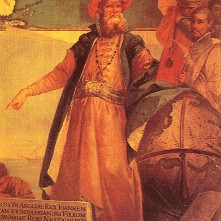
John Cabot
1496 - King Henry VII of England issued letters patent to John Cabot (Giovanni Caboto), the Italian navigator and explorer, giving him
“...free authority, faculty and power to sail to all parts, regions and coasts of the eastern, western and northern sea, under our banners, flags and ensigns, with five ships or vessels of whatsoever burden and quality they may be, and with so many and with such mariners and men as they may wish to take with them in the said ships, at their own proper costs and charges, to find, discover and investigate whatsoever islands, countries, regions or provinces of heathens and infidels, in whatsoever part of the world placed, which before this time were unknown to all Christians.”
1549 – A bill of attainder was passed against Thomas Seymour, Baron Sudeley, after it was argued that his offences “were in the compasse of treason”. Seymour had been accused of attempting to kidnap his nephew, Edward VI, and also of plotting to marry the teenaged Elizabeth and put her on the throne.
1558 – Smoking tobacco was introduced in Europe by Francisco Fernandes.
1563 – Birth of Sir John Coke, politician and influential administrator during Charles I's reign.
1572 – Death of Edward Hastings, Baron Hastings of Loughborough, nobleman and soldier. In July 1553, when Lady Jane Grey became queen, he was involved in assembling supporters of Princess Mary in the Thames Valley and became one of Mary's trusted confidants. In the reign of Elizabeth I he was imprisoned in the Tower for hearing mass, but was released after taking the oath of supremacy.
1575 – Birth and baptism of William Oughtred, the mathematician responsible for developing a straight slide-rule, a gauging rod and various sundials. He also introduced the "×" symbol for multiplication and the abbreviations "sin" and "cos" for the sine and cosine functions.
1618 – Burial of Robert Abbot, Bishop of Salisbury, in Salisbury Cathedral.
6 March
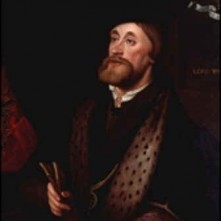
Thomas Wriothesley
1536 - Introduction into Parliament of the “Act for the Suppression (or Dissolution) of the Lesser Monasteries”. The act affected the “lesser monasteries”; those with fewer than twelve members and those worth less than £200 per year. They were to be dissolved, their heads pensioned off and their members to become secularized or moved to larger monasteries “where they may be compelled to live religiously for reformation of their lives”.
1547 - Thomas Wriothesley lost the Great Seal of his Lord Chancellorship and was confined to his home at Ely Place for abusing his authority. He was found guilty of issuing a commission without the knowledge or permission of the other executors of Henry VIII's will, but it was probably more to do with his opposition to Edward Seymour, Duke of Somerset, becoming Lord Protector. He was later re-admitted to the Privy Council, a position he'd also lost at his fall.
1597 - Death of William Brooke, 10th Baron Cobham, courtier and diplomat, from an ague. He died at Blackfriars and was buried at St Mary Magdalene Church, Cobham. Brooke was the son of George Brooke, 9th Baron Cobham, and his wife, Anne (née Bray), an attendant horsewoman at Anne Boleyn's coronation. In Elizabeth I's reign, Cobham served as Lord Warden of the Cinque Ports, Constable of Dover Castle, Lord Lieutenant and Vice Admiral of Kent, and Privy Councillor.
7 March
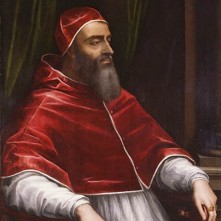
Pope Clement VII
1530 - Pope Clement VII wrote to Henry VIII forbidding him to marry again, and threatening him with excommunication if he did.
1544 – Executions of Germaine Gardiner, nephew of Stephen Gardiner, and John Larke for denying the royal supremacy. They were hanged, drawn and quartered at Tyburn. Germaine had already been in trouble in 1543 when he was implicated in the Prebendaries' Plot against Archbishop Thomas Cranmer.
1544 – Execution of Robert Singleton, clergyman, for treason at Tyburn. Singleton served Thomas Cromwell as a Preacher and Anne Boleyn as a Chaplain before becoming Arch-priest of St Martin's-le-Grand in Dover. It appears that his execution was down to his heretical writings.
1556 – One of the days on which the Great Comet, or the Comet of Charles V, was seen and recorded by Paul Fabricius, mathematician and physician at Charles V's court.
1574 – Baptism of John Wilbye, composer and musician, at Diss in Norfolk. He composed and published two sets of madrigals, and also contributed “The Lady Oriana”, to a collection in praise of Elizabeth I in 1601, and two madrigals to William Leighton's 1614 collection.
1594 – Death of Sir John Burgh, soldier, from a rapier wound suffered in a duel with John Gilbert, stepbrother of Sir Walter Ralegh. This duel happened during Burgh's second voyage to the West Indies. He was buried in Westminster Abbey, in St Andrew's Chapel.
8 March
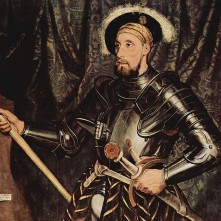
Nicholas Carew
1495 – Birth of John of God (João Cidade) in Montemor-o-Novo, Portugal. He was one of Spain's leading religious figures and the order he created, the Brothers Hospitallers of St. John of God, still has bases around the world today.
1539 - Sir Nicholas Carew was beheaded on Tower Hill for treason. Apparently, a letter was found at the Marchioness of Exeter's home, which was evidence of Carew being involved in a conspiracy with the Marquis of Exeter and Baron Montagu, and plotting with Cardinal Pole, Montagu's exiled brother.
1542 – Burial of Geoffrey Blythe, clergyman, Treasurer of Lichfield, former Warden of King's Hall, Cambridge and former Archdeacon of Stafford. Blythe was one of the divines recorded by martyrologist John Foxe as preaching against Hugh Latimer at Cambridge. Blythe was buried at All Saints' Church in Cambridge.
1569 – Death of Richard Tracy, evangelical reformer and cousin of Protestant martyr James Bainham, at his manor in Stanway, Gloucestershire. Tracy's works included “Profe and Declaration of thys Proposition: Fayth only iustifieth”, which was dedicated to Henry VIII, “‘A Supplycation to our most Soueraigne Lorde, Kynge Henry the Eyght” and “A Bryef and short Declaracyon made wherebye euery Chrysten Man may knowe what is a Sacrament”. In Elizabeth I's reign, he served as a Commissioner of the Peace and Sheriff in Gloucestershire.

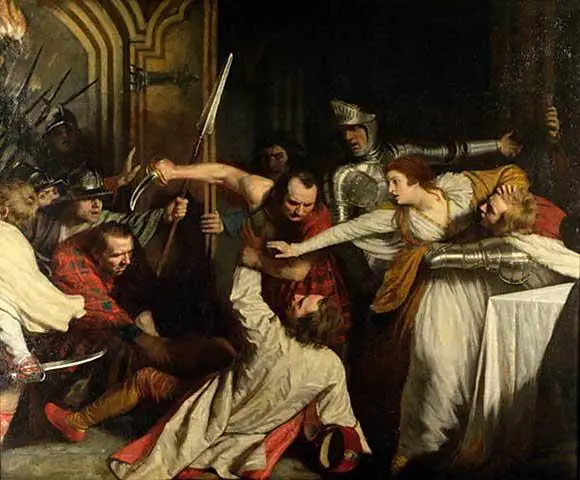
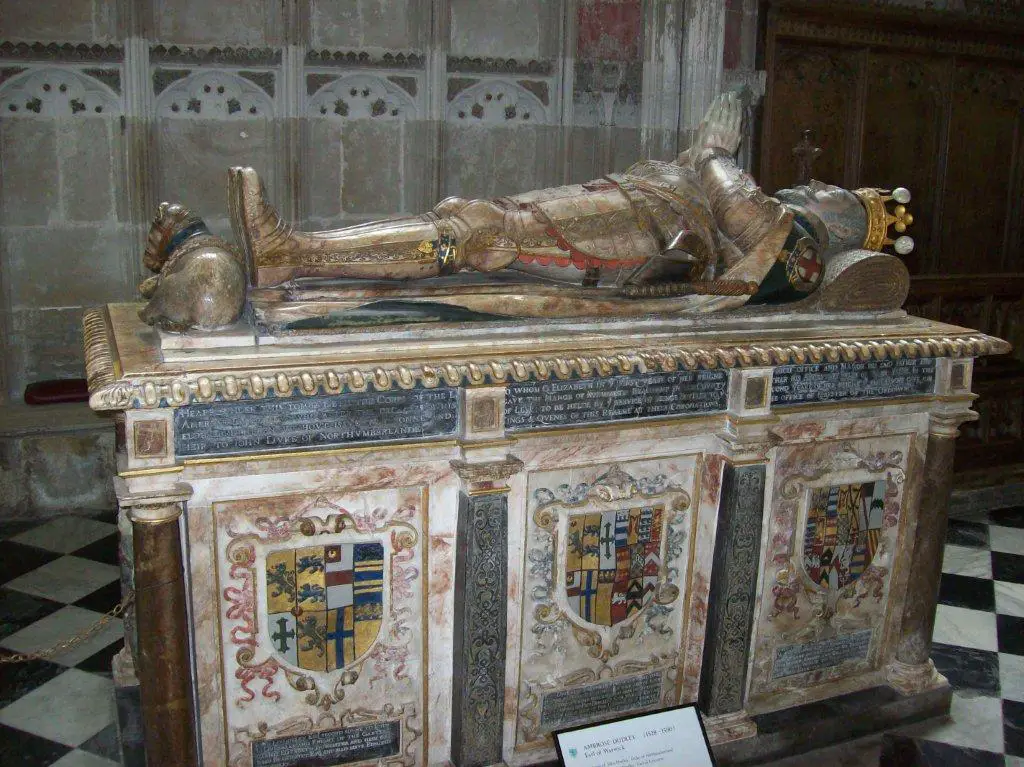
Leave a Reply